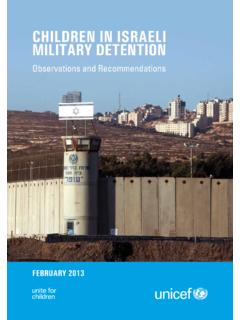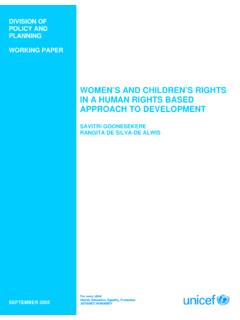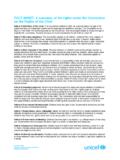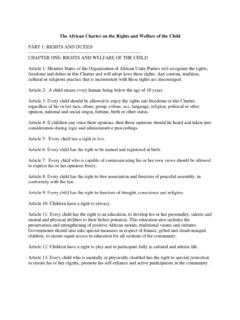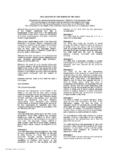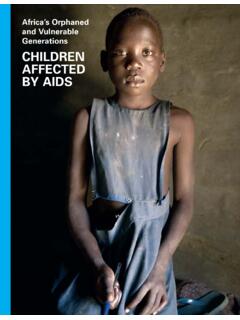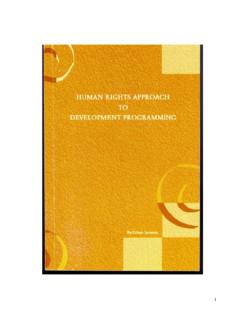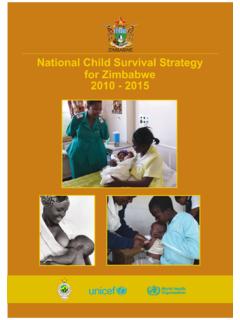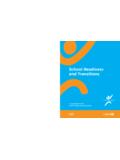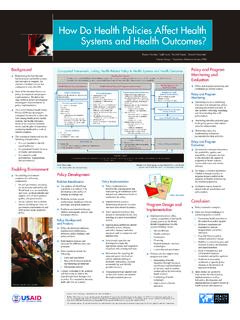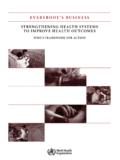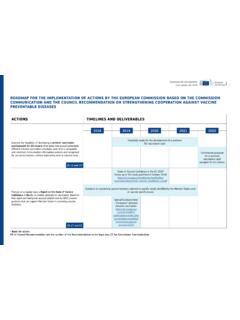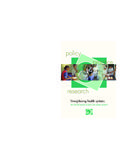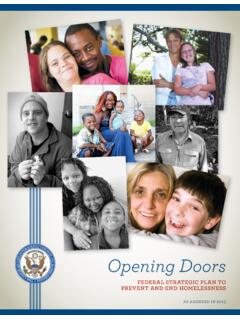Transcription of NUTRITION IN EMERGENCIES
1 1 NUTRITION IN EMERGENCIESS aving lives today, strengthening systems for tomorrow2 She s been walking for days. Her body aches and her stomach is empty when she finally reaches the refugee camp. With her baby slung low on her back, she searches for a safe place to rest and feed him. The ground is littered with debris and everywhere she looks there are people. The task before her seems enormous: find food, safe water and a clean place to rest and breastfeed her every child, nutrition3 The world is facing an unprecedented number of humanitarian situations today.
2 Protracted conflicts, natural disasters and devastating food insecurity grip communities around the world, threatening lives and livelihoods and women and children bear the greatest consequences. By the end of 2016, more than half a billion children were living in countries affected by conflict, disasters and epidemics. Humanitarian crises are often characterized by limited access to safe food and clean water as well as disruptions to basic health and NUTRITION services a lethal cocktail of undernutrition. During humanitarian crises, UNICEF s foremost priorities are to prevent death from starvation and disease and to reduce malnutrition.
3 This work is guided by the Core Commitments to Children in Humanitarian Action a global framework for fulfilling the rights of children affected by humanitarian crisis. In a NUTRITION emergency, every second counts: a timely, coordinated response has the power to safeguard children s minds, bodies and protect children s right to food and NUTRITION in EMERGENCIES , UNICEF and its partners identify and treat children suffering from acute malnutrition, provide fortified foods and supplements to prevent vitamin and nutrient deficiencies, protect and promote breastfeeding, and support families in providing safe and nutritious food for young children.
4 In the past year alone, UNICEF responded to 344 humanitarian situations of varying scale in 108 countries the largest number of situations and countries in more than a say this work is urgent is an understatement. Malnutrition is deadly: a child suffering from severe acute malnutrition is nine times more likely to die than a well-nourished child. But the dire consequences of malnutrition are not always visible from the outside. Poor diets also inflict devastating damage on the inside, stunting children s growth, impairing their brain development and leaving them susceptible to disease.
5 UNICEF s NUTRITION programmes aim to foster children s growth and development over the long term, ensuring they not only survive but go on to live healthy and productive lives. NUTRITION AT A BREAKING POINT45 Laying the groundwork for emergency responsePlanning and emergency preparedness are the foundations of effective humanitarian malnutrition before it starts UNICEF works to build the foundations of good NUTRITION including access to nutritious foods during pregnancy and early childhood, access to basic services and a safe and healthy environment to keep children strong and resilient in the face of disease and disaster.
6 strengthening systems and strategies UNICEF helps governments plan for EMERGENCIES by putting the right policies, programmes and strategies in place ahead of time and securing the human resources needed to scale up emergency response when NUTRITION information UNICEF supports countries in monitoring and collecting national data on malnutrition that can help them make critical decisions before, during and after a and managing risks UNICEF helps countries anticipate threats to good NUTRITION and develop risk-informed systems and programmes that are flexible and poised to adapt when emergency a coordinated response Within countries, UNICEF is mandated as the lead agency for NUTRITION , heading emergency coordination efforts in more than 60 countries.
7 UNICEF also leads the Global NUTRITION Cluster a body tasked with ensuring a timely, well-coordinated and effective response where the scale of emergency is so large that no single agency or national authority can address it urgent treatment and care in crisisWhen disaster strikes, UNICEF is on the ground delivering emergency NUTRITION to the children and families who need it leadership under pressure UNICEF works with governments to conduct rapid NUTRITION assessments to identify gaps and vulnerabilities and to coordinate a plan of action among multiple hidden hunger with vitamins and essential nutrients UNICEF provides vitamin supplementation and fortified foods to women and children such as vitamin A.
8 Iodized salt and micronutrient powders to prevent nutrient deficiencies and other forms of malnutrition. Supplementation boosts children s immunity and can even save lives: for example, two-doses of vitamin A can reduce child mortality by 12-24 and supporting breastfeeding UNICEF provides counselling to mothers and caregivers and establishes safe spaces for feeding children in times of crisis. In 2016, more than million caregivers received such counselling with UNICEF support. Where infant formula is required, UNICEF provides monitoring and oversight to ensure it is distributed ethically.
9 Working to keep good NUTRITION inside the body UNICEF improves access to clean water and adequate sanitation during EMERGENCIES to prevent diarrhoeal diseases, which can deplete children s nutrient stores and leave them vulnerable to life-saving treatment and care When prevention fails, UNICEF delivers urgent, life-saving treatment and care for children suffering from severe acute malnutrition. In the past year alone, UNICEF treated million children with severe acute malnutrition in humanitarian the way back from disasterUNICEF supports countries as they rebuild and recover after and surveillance UNICEF tracks the NUTRITION situation during EMERGENCIES and advises countries on the way forward as they transition out of crisis and improve future disaster risk reduction resilience UNICEF supports countries in building and strengthening polices and systems to help communities anticipate, withstand.
10 And bounce back from shocks and for change As contexts shift, UNICEF helps countries adapt emergency NUTRITION programmes into effective long-term strategies. For example, UNICEF advocates for the treatment of severe acute malnutrition to be funded by domestic budgets and integrated into routine health services for collaborates across sectors at every stage of the process from preparedness, to response, to recovery in recognition of the multiple determinants of malnutrition in EMERGENCIES . Leveraging its strength as an agency with expertise across multiple sectors, UNICEF s strategies and delivery platforms combine NUTRITION , health, water, sanitation and hygiene interventions to guarantee a rapid and holistic hands on deck: An integrated chain of responseTo be effective, the national response to NUTRITION EMERGENCIES needs to be based on data and grounded in evidence about what works.
